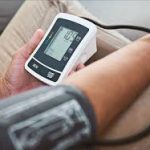Take the next step towards a healthier heart

Image from depositphotos.com
Greetings, everybody.
I hope this article is finding you doing well. At this time, we are just past the halfway point through winter. During the colder and gray months, it can be more difficult to stay motivated to take the steps to maintain or improve your heart health, such as staying physically active and eating a healthier diet. However, February is American Heart Month, so we’re here to share helpful tips to achieve a healthier heart.
Why is heart health so important?
Heart disease is the leading cause of death among men, women, and people of most racial and ethnic groups in the United States. Uncontrolled high blood pressure, high cholesterol levels, and smoking are among the risk factors that are most strongly associated with heart disease. Other risk factors include family history, being overweight, physical inactivity, and the presence of other health conditions such as diabetes.
It’s not too late to take action.
We may be getting older. Some of us may have gained a few pounds during winter. Some may still be smoking, despite previous intentions or attempts to quit. Yet others are already taking medications to help control their blood pressure or other heart-related health conditions. Even if some of these factors apply to you, do not become too frustrated. Take comfort in knowing it is not too late to take the next step towards a healthier heart.
This article will share multiple tips to help you get there. While achieving all of these tips may be ideal, successfully achieving any of these will be a positive step for you. If you are unsure which steps may be best for you to try, work with your physician and/or pharmacist to help you.
Know your numbers

Image from health.clevelandclinic.org
One of the most important steps you can take towards a healthier heart is to make sure your blood pressure (BP) is under control. Now there are two existing guidelines regarding blood pressure control. The Eighth Joint National Committee (JNC8) recommendation for most people is to keep the BP under 140/90. However, the American College of Cardiology/American Heart Association (ACC/AHA) recommendation is to keep the BP under 130/80. Determining which guideline best applies to you depends on factors including the presence of other health conditions. So if you take BP medications, make sure you are taking them as directed. Also, if you have questions or concerns about your medication(s), talk with your pharmacist. In addition, if you are interested in purchasing a home BP monitor, your pharmacist can help you decide which model is appropriate for you and can teach you how to use it correctly.
Another set of numbers to be familiar with are your lipid levels, also known as cholesterol levels. These can be determined from a simple blood test that can be performed either by your physician or some pharmacies also offer this service. The numbers can be confusing, so talk with your doctor or pharmacist to learn how these numbers relate to your risk for heart disease. Also, it is important to take cholesterol-lowering medications as directed to achieve improved results and reduce side effects.
Get moving!

Image from medicalnewstoday.com
Exercise is very important for a healthy heart. An ideal amount to promote heart health is to get at least 30 minutes of aerobic activity daily, 5 days per week. For an activity to be considered aerobic, it requires the heart to pump oxygen-rich blood throughout the body. Learn more about the importance of aerobic activity and see some examples here.
As always, to reduce the risk for injury, consult with your physician before starting an exercise program.
Review your diet and fat intake.

Image from verywellhealth.com
There can be a lot of confusion about the fats in our food. So in simplest terms, consider saturated fats as “bad fats” that can increase the bad cholesterol levels in our bodies. Studies are inconclusive as to how much our saturated fat intake directly increases our risk of heart disease, but these studies suggest limiting saturated fat intake and increasing unsaturated fats may decrease our risk for heart disease.
Examples of saturated fats:
-Red meats
-Whole milk
-Whole milk dairy foods
-Cheeses
-Coconut oils
Now unsaturated fats can be divided into monounsaturated fats and polyunsaturated fats. Consider these the “good fats.” These fats may improve a person’s cholesterol profile, and may decrease risks for heart attacks or strokes. Here are some examples of these “good fats”:
Monounsaturated fats:
-Olive oil
-Peanut oil
-Canola oil
-Avocados
-Most nuts
Polyunsaturated fats:
-Corn oil
-Sunflower oil
-Safflower oil
-Fatty fish (Salmon, mackerel, sardines)
-Flaxseeds
No smoking!!!

Image from hodgsonrx.com
This point I cannot stress enough. It’s always best to never start smoking. If you have successfully quit smoking…congratulations! If you currently smoke, do not give up hope. Your pharmacist can work with your physician to design a plan unique to your preferences. Talk with us to learn more about options available. Also, keep in mind that most people will need more than one attempt before completely quitting. So the message here is, “don’t quit quitting!”
Now there are more factors to consider regarding one’s overall risk for heart attack, stroke, or other complications. For a more personalized assessment, contact us at BetterMyMeds! As always, we encourage questions and comments regarding our posts.
Wishing you good health!
#Americanheartmonth #pharmacy #patientcare #community #bloodpressure #healthyheart
